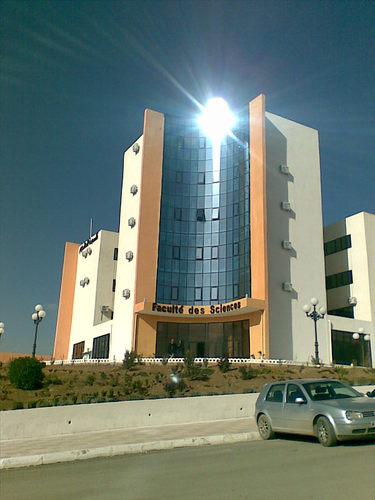|
| Titre : |
Fully Attention Convolutional Deep Neural Networks for Polyp Segmentation and Classification from Histological and Colonoscopic Images |
| Type de document : |
texte imprimÃĐ |
| Auteurs : |
Ines Mansour, Auteur ; Nour Hamache, Auteur ; Abdelouaheb Moussaoui, Directeur de thÃĻse |
| AnnÃĐe de publication : |
2023 |
| Importance : |
1 vol (177 f .) |
| Format : |
29cm |
| Langues : |
Français (fre) |
| CatÃĐgories : |
ThÃĻses & MÃĐmoires:Informatique
|
| Mots-clÃĐs : |
Colorectal cancer
Colorectal polyps |
| Index. dÃĐcimale : |
004 Informatique |
| RÃĐsumÃĐ : |
Colorectal cancer (CRC) is a type of cancer that affects the colon or rectum,
which are parts of the large intestine. It was the 3rd most commonly diagnosed
cancer worldwide and the 2nd leading cause of cancer-related deaths after lung
cancer in 2022. It can be prevented if glandular tissue (adenomatous polyps) is
detected early. At the same time, Colonoscopy has been strongly recommended
as a screening test for both early cancer and adenomatous polyps. However, its
limitations include the high polyp miss rate for smaller (<10mm) or flat polyps,
which are easily missed during visual inspection. Machine and Deep learning have
emerged as promising tools in the field of cancer research and diagnosis and can
be easily used in this context for the detection and segmentation of this type of
cancer.
In this work, we develop both Machine learning and Deep learning models that
can segment and classify medical images to improve the diagnosis and treatment
of colorectal cancer. We used Segmentation, and Classification techniques on
both Colonoscopic and Histological images. For that, we propose two deep CNN
convolutional neural network architectures from scratch,also we proposed CNN
model with and attention mechanism such as CNN with CBAM, and we tuned 12
pre-trained models in histological images.in totle we proposed 18 models for
histological images, and 6 others in colonoscopic images, that have been trained
on large datasets, such as:
â Machine Learning Classifiers such as ANN, KNN, SVM, RF, ABD, and XGB.
â CNN Architectures without Attention mechanism : CNN Models from
scratch.
â CNN Architectures with Attention mechanism : CNN with CBAM.
â Transfer Learning such as U-Net, DeepLabV3+, VGG, ResNet.
â Transformers such as ViT (Vision Transformer): ViT B16, ViT B32.
â Object Segmentation Methods such as SAM (Segment Anything Model).
iii
Our proposed models in Binary Classification on histological images obtained
accuracy in a range [84.93%, 99,80%]. And our proposed models in Semantic
Segmentation on colonoscopic images obtained an IoU score in the range [97.22%,
98.47%]. AI will revolutionize the medical field by enabling faster and more accurate
diagnoses, personalized treatment plans, and improved patient outcomes. |
| Côte titre : |
MAI/0712 |
Fully Attention Convolutional Deep Neural Networks for Polyp Segmentation and Classification from Histological and Colonoscopic Images [texte imprimÃĐ] / Ines Mansour, Auteur ; Nour Hamache, Auteur ; Abdelouaheb Moussaoui, Directeur de thÃĻse . - 2023 . - 1 vol (177 f .) ; 29cm. Langues : Français ( fre)
| CatÃĐgories : |
ThÃĻses & MÃĐmoires:Informatique
|
| Mots-clÃĐs : |
Colorectal cancer
Colorectal polyps |
| Index. dÃĐcimale : |
004 Informatique |
| RÃĐsumÃĐ : |
Colorectal cancer (CRC) is a type of cancer that affects the colon or rectum,
which are parts of the large intestine. It was the 3rd most commonly diagnosed
cancer worldwide and the 2nd leading cause of cancer-related deaths after lung
cancer in 2022. It can be prevented if glandular tissue (adenomatous polyps) is
detected early. At the same time, Colonoscopy has been strongly recommended
as a screening test for both early cancer and adenomatous polyps. However, its
limitations include the high polyp miss rate for smaller (<10mm) or flat polyps,
which are easily missed during visual inspection. Machine and Deep learning have
emerged as promising tools in the field of cancer research and diagnosis and can
be easily used in this context for the detection and segmentation of this type of
cancer.
In this work, we develop both Machine learning and Deep learning models that
can segment and classify medical images to improve the diagnosis and treatment
of colorectal cancer. We used Segmentation, and Classification techniques on
both Colonoscopic and Histological images. For that, we propose two deep CNN
convolutional neural network architectures from scratch,also we proposed CNN
model with and attention mechanism such as CNN with CBAM, and we tuned 12
pre-trained models in histological images.in totle we proposed 18 models for
histological images, and 6 others in colonoscopic images, that have been trained
on large datasets, such as:
â Machine Learning Classifiers such as ANN, KNN, SVM, RF, ABD, and XGB.
â CNN Architectures without Attention mechanism : CNN Models from
scratch.
â CNN Architectures with Attention mechanism : CNN with CBAM.
â Transfer Learning such as U-Net, DeepLabV3+, VGG, ResNet.
â Transformers such as ViT (Vision Transformer): ViT B16, ViT B32.
â Object Segmentation Methods such as SAM (Segment Anything Model).
iii
Our proposed models in Binary Classification on histological images obtained
accuracy in a range [84.93%, 99,80%]. And our proposed models in Semantic
Segmentation on colonoscopic images obtained an IoU score in the range [97.22%,
98.47%]. AI will revolutionize the medical field by enabling faster and more accurate
diagnoses, personalized treatment plans, and improved patient outcomes. |
| Côte titre : |
MAI/0712 |
|


 Ajouter le rÃĐsultat dans votre panier Affiner la recherche
Ajouter le rÃĐsultat dans votre panier Affiner la rechercheFully Attention Convolutional Deep Neural Networks for Polyp Segmentation and Classification from Histological and Colonoscopic Images / Ines Mansour

